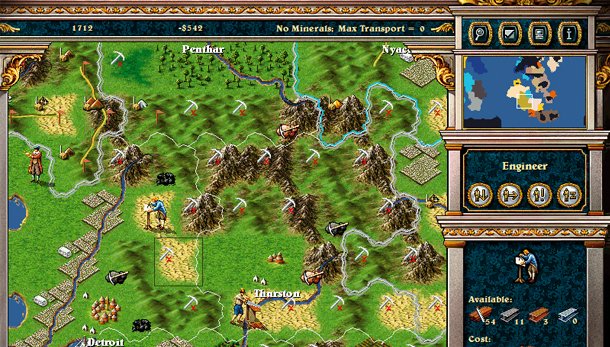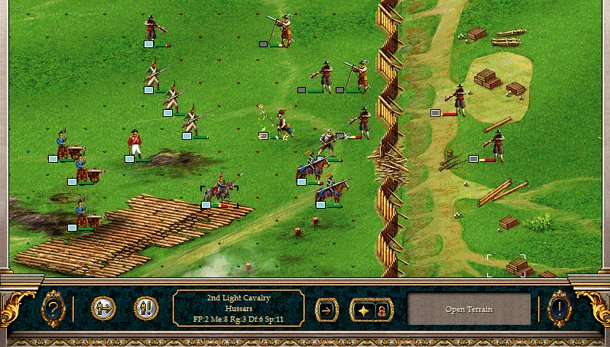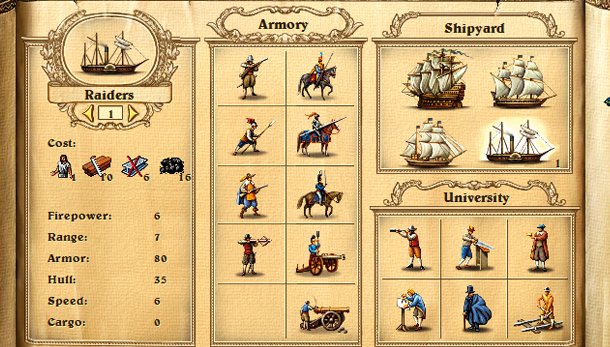
Reinstall invites you to join us in revisiting classics of PC gaming days gone by. This week, we explore the criminally overlooked grand strategy gem, Imperialism 2.
Where's El Dorado? What's the purpose of the Nazca Lines? Who did Jack the Ripper's laundry? All these are very minor mysteries compared with history's ultimate baffler: why didn't Imperialism go on to be as famous a franchise as Civilization?
As anyone familiar with this splendid Renaissance-rammed turn-based strategy game will tell you, Frog City's Imperialism 2 was every bit as colourful, clever, and compelling as Microprose's Civilization 2. If you're under 20 and the sort of past-prodder that's naturally drawn to Civ, the Anno series or Paradox fare, there's a very good chance this is the best game you've never played.
The original Imperialism was caked in the soot of the 19th century. For the sequel, designers Ben Polk and the Spieth brothers, Ted and Bill, decided to shove the start date right back to the time of Columbus and the Conquistadors. It was an inspired move. Although victory conditions still revolve around gaining control of half of the Old World, players are expected to explore and exploit the New World in order to fund their European dreams.

In a lesser creation, 'exploit the New World' would be a euphemism for 'butcher brown people and swipe their stuff'. In the economically engrossing Imperialism 2, though unseemly land grabs and brutal native culls are regular occurrences, you're nudged towards more subtle behaviours. Because military expeditions are risky and costly, it's often best to put pike and musket aside and colonise patiently with coffer and quill.
At the start of every game, sailing ships rush towards the fog-of-war-shrouded shores of the randomly generated Americas (Europe can be randomly generated too, if you prefer). As soon as these vessels spy land, morion-helmed explorers are off over hill and vale in search of potentially valuable resource tiles. In the footsteps of the fog-dispersers come merchants, engineers, and builders.
By buying plots studded with precious metals and gems, or those suitable for the cultivation of crops such as tobacco and sugar cane, and then linking those plots to ports, the shrewd strategist achieves two important ends. He protects a province from early invasion (while AI powers are quick to gobble up tribal nations, they'll hold back if an assault means declaring war on a powerful European state) and he sows the seeds for a – hopefully – long and profitable relationship with the land seller.
The biggest gaming news, reviews and hardware deals
Keep up to date with the most important stories and the best deals, as picked by the PC Gamer team.

From that point on, every time the tribe sells baccy, silver ingots or whatever from the purchased land, the player receives a cut of the profits. The better the relationship with the tribe, the bigger the cut. Being an investor rather than a divestor can be incredibly satisfying.
Commerce and diplomacy are beautifully linked in Imperialism 2, and both are crucial. When one of the 20 commodity types is traded, affection grows between the two trading nations. Do enough deals with a minor or tribal state and one day it may like you enough to peaceably join your empire. Each turn, you're not only attempting to buy the goods you need at prices you can afford, you're also striving – sometimes by offering subsidies – to strike deals with potential annexees. The game is a spiv's paradise.
It's also a heaven for transport tweakers. In a typically elegant piece of design, your exploring ships enable amphibious invasions, conduct blockades and piracy, and also make possible trade and intra-empire transport. A turn seldom passes when you won't be contemplating the tubs moored at your capital's port (happily, there's no need to manually choreograph maritime logistics), wondering how many should be assigned to patrols and colonial milk-runs, and how many should be made available to ferry traded goods to and from shipless minors and tribes.

